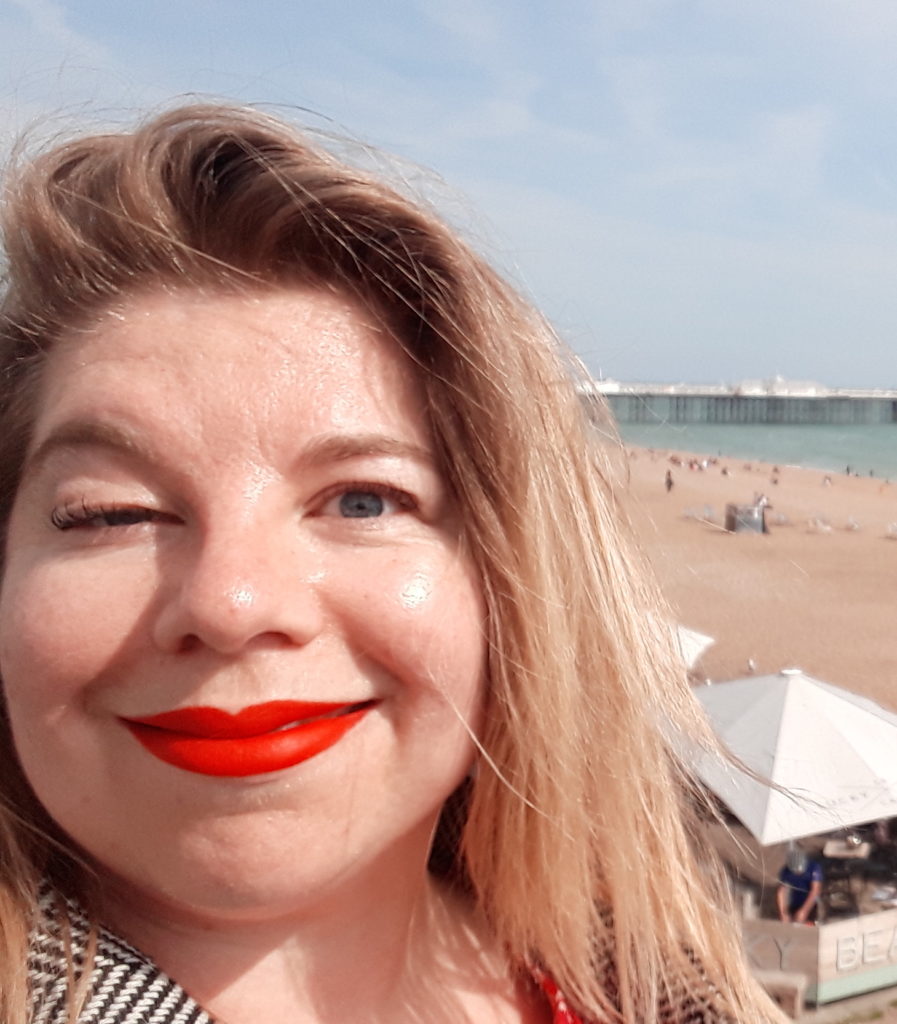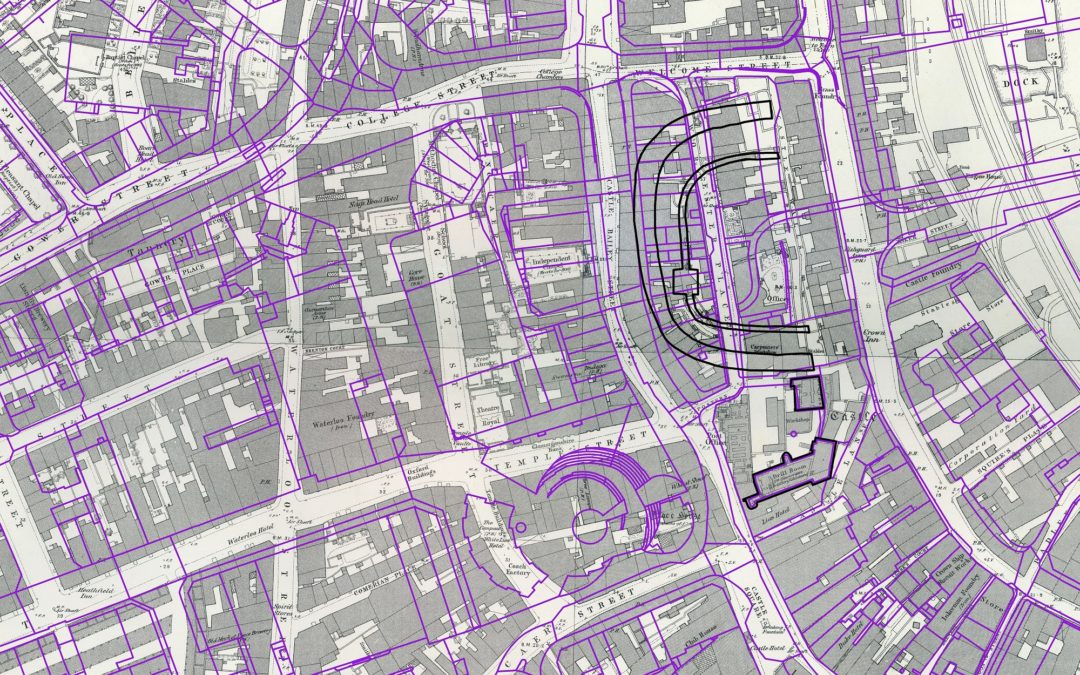By Sue Horth
Sue Horth, BAFTA-winning Executive Producer, has made some of the most exciting history-based and factual drama on television in recent years, from ‘Damilola, Our Loved Boy’ to ’37 Days’, exploring the lead-up to the First World War. As the holder of the IHR’s very first Practitioner Residency, Sue has been keeping a diary of her experiences, as she begins to develop ideas for projects, collaborations, and events. We will share Sue’s diary here monthly between now and July.
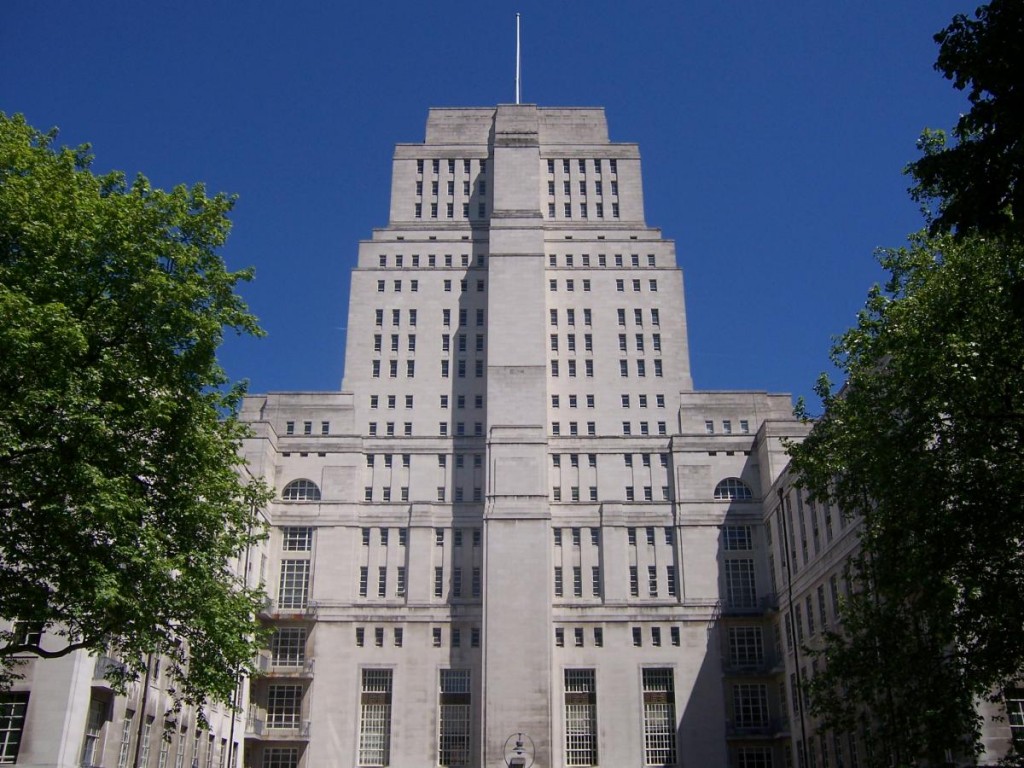
30th March 2022
Like a student turning up for induction day, I round the corner of Gower Street and gasp at the magnitude of Senate House. It seems to shimmer, not entirely grounded, a monumental art deco castle among its smoke-shaded Georgian neighbours. I sit down with Claire to discuss how the next few months might unfold… how does one fulfil a practitioner residency? Are there deliverables? Should I make something? What do I need to write? And twenty years of habitual professional frenzy unwind, as we agree the great joy of this opportunity is exploration, immersion, seeing what evolves organically. Deadlines and adrenaline have their place, but not so much in these three months—and that really is a gift.
Claire shows me round the Institute, starting with the staircase display highlighting the contributions of female historians throughout the IHR’s 100-year history, accompanying the heritage portraits of the first 12 male directors. It’s a fine staircase—like all at Senate House—and like many great institutions, one ascended by women who were rarely accorded the privileges of their male colleagues. I feel very lucky.
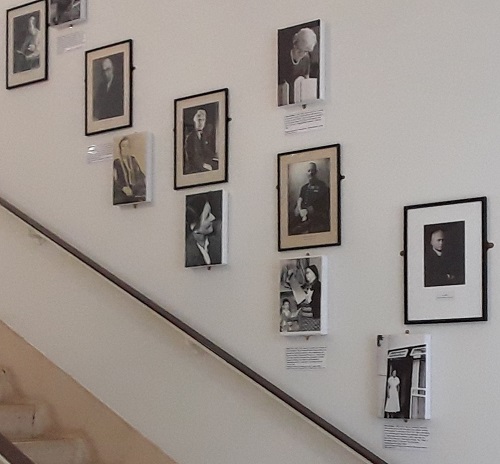
1st April
I set off to explore all four floors of the IHR. From the common room and offices on the ground floor, the reading rooms in the basement, and the the seemingly endless resources of the Wohl Library, to my own designated space on the third floor, I wander the shelves, watching eras of history unfurl through statutes and personal testimony, maps and records of land ownership and transformation. I’ve never seen so many primary sources on open shelves. It’s paradise for any storyteller.
But I do notice that everywhere, men fill the shelves. Powerful kings, bishops, parliamentarians, landowners, aristocrats, soldiers, aldermen, businessmen, prime ministers… I realise that I want to find where the women are.
I open a small book at random—‘Assize of Nuisance’—and discover a neighbourhood dispute in a London parish from 1423: ‘Robert such-and-such, indicted, for failing to clear the dung from the common path, and also, his wife is a strumpet and a bawd.’ I feel a wave of familiarity from my local Nextdoor newsfeed… these are the life experiences I’m interested in tracing. But also—here’s where some of the women are—named and shamed as mere wives, denounced for petty resentments.
On other shelves I find women documenting the traumas of the Civil War, women struggling to divorce their violent husbands, women publishing ‘mothers’ legacies’—open letters to their unborn children in the event of their own death in childbirth. So many women occupy bleak and violent places.
6th April
Invited to a meeting with the Centre for the History of People, Place and Community, proudly bringing a couple of my own primary source documents to show and tell, Catherine and her team gamely entertain my yabbering about an 1850 tour guide to 1560 London, and my Grandfather’s copy of ‘Front Line’ from 1941; a Government illustrated booklet recording civil defence experiences during the Blitz. They point out that the booklet was published right here, at the ‘Ministry of Information’, so in a way, I’m bringing it home.
I spend a happy hour afterwards, with Adam, ranging wildly across subjects like the Munich Agreement, the expansion of London railways and military requisitioning of trucks and buses. Matt shows me the incredible breadth of Layers of London (I immediately search the bomb damage photos of my own street), and Philip walks me through the grand halls and corridors of Senate House ’proper’—which, like every other producer on earth, I immediately want to book as a film location—and I learn that in this wonderful labyrinth, not every door opens, and not every floor leads directly to the one above or below. I love the fabric of this place.
In a teatime conversation with Catherine, we discover a common interest in William Cragh, medieval Swansea’s ‘hanged man’, who I’ve made a BBC documentary about, and we consider the healing spaces offered at sites of pilgrimage, not only for physical conditions, but for psychological distress too. Again, I think of all the women, unrecorded by formal history, who sought solace through pilgrimage and ritual, and all the women whose knowledge and non-conformity saw them condemned as witches. Somewhere in all this oppression, there must be an inspiring, liberated story to tell…. I’ve told a lot of male-centred stories in my time and I’ve a hunger for more balance.
And then we land on nunneries.

Among the greatest historic dangers faced by women are male violence, rape, and death in childbirth, all of which I’d so far encountered on the IHR’s shelves of testimony. In that context, I suddenly saw the appeal of a nunnery, where the chances of those specific traumas were significantly reduced. Perhaps, beyond the familiar impression of imprisonment, surrender, chastity and denial, these could also be places of a kind of liberation, even independence….? A safer space, for women. Somewhere in my head, a cog starts turning.
7th April
I gatecrash Justin’s visit to Senate House Rare Books and Special Collections, and gawp at the world’s most beautiful reading room, which I realise is just above my own IHR desk – at least in a topographical sense, though not in a practical sense given the Senate House labyrinth.
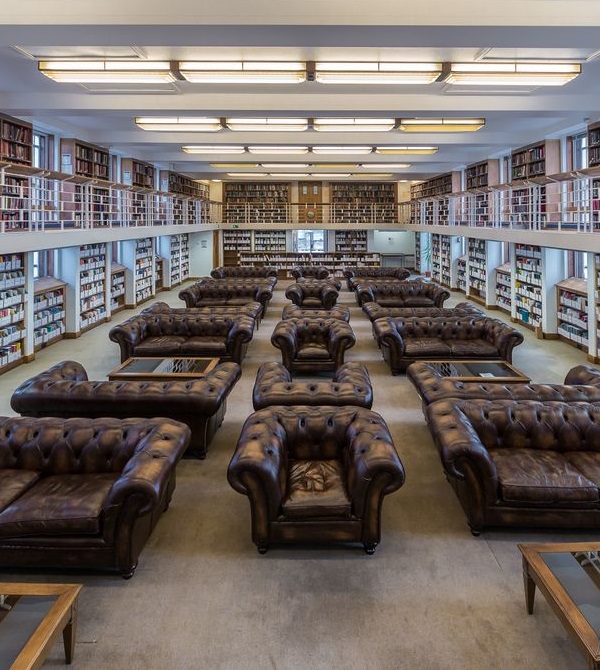
I find more women on the shelves, pleading for clemency in eighteenth century debtors’ jail and for protection in bastardy cases – a cost of living crisis and a brutal child support system, not so alien to our own. My mind wanders again to the nuns.
11th April
I spend the day reading my copy of ‘Front Line’ from cover to cover. Here are brilliant women, volunteering in civil defence, as ambulance drivers, ARP wardens, helping feed and clothe their bombed-out neighbours, protecting each others’ families, while holding down full-time jobs. I’m thrilled that the Ministry of Information civil servant who put this booklet together chose to highlight the contribution of women, and didn’t sugar-coat the immense trauma and psychological distress of the many thousands bombed and displaced. Every photo echoes today’s coverage of Ukraine.
12th April
An amazing conversation with Kate and Mike in the Wohl library reveals how many other copies of ‘Front Line’ sit in libraries across the world, and we call up some DPhil theses from the stacks, about medieval nunneries. I’m surprised they’re each the size of the Gutenberg Bible. Not for the first time, I wonder who organises all the book-binding in this place. I settle down to read about fifteenth century nuns and for the next few days, I’m immersed in this fascinating world. Not quite Beyonce’s ‘independent women’, but getting closer….
20th April
An epic six hours in conversation with Dr Amara Thornton of the Institute of Classical Studies, whose collaboration with the IHR, ‘Beyond Notability’, will illuminate and highlight the talents and experiences of dozens of extraordinary women historians and archaeologists from the 19th and early 20th centuries, whose work remains largely unknown. Several compiled significant chunks of the Victoria County History (VCH), including major chapters on the Ecclesiastical history of London, and as freelance historians, often had to negotiate improved pay, under inadequate budgets for their skilled and meticulous labour…. which speaks to my freelance soul!
Amara also introduced me to expanses of experience and storytelling largely unknown to me, including non-white narratives and histories, planting all sorts of creative seeds, and raising exciting possibilities for my own potential contributions to the IHR community. The freedom to sit and talk, creatively and historically, for nearly six hours, is something I never get in my regular professional life. Hopefully I didn’t bore Amara senseless in return, with lengthy reflections on my own industry….
22nd April
Delighted to show my friend’s 10 year old daughter around the Senate House labyrinth, especially the awesome architecture and the thrill of the rolling stacks – don’t get squished! I suggest she try a book at random, to see what it contains – and by some serendipitous magic, it’s the Magdalen College, Oxford roll, from 1649 – the place where her mother and I became friends 26 years ago – but a glaring absence of any female names 350 before us…! What does she think about that? ‘……… all the books here are reeeally old.’
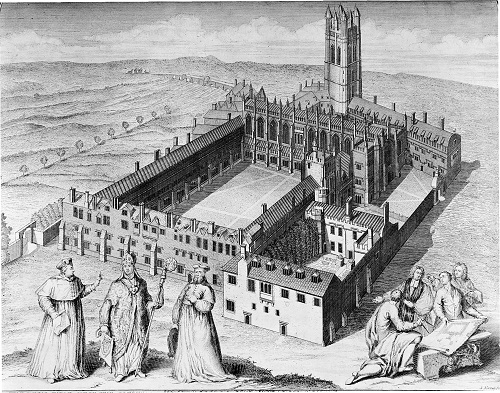
27th & 28th April
Full immersion in the resources and stories suggested by Amara, including the remarkable Edwardian women of the VCH, whose authorial voices strike me as readably modern, accessible, full of personality. If they’d been writing today, these women would be acclaimed for their talents and rigour. Beyond Notability, indeed.
29th April
My first catch-up with Claire results in five wild ideas for creative contributions to the IHR community over the next two months…. exciting, and ambitious, and like every new venture, slightly terrifying. As the spring sunshine of May Eve bathes Gower Street in warmth, I set off to try to bring them to fruition.
6th May
Over lunch with Professor Patricia Rosenmeyer, Classicist from UNC Chapel Hill, Director of the Carolina Center for Jewish Studies, and the visiting Dorothy Tarrant Fellow at the ICS, we discuss her research and upcoming talk on the experiences of two respected North American Classicists, during their wartime internment as young German Jews, initially in Britain and then Canada. One of these young refugees would become Patricia’s father. I share an interest in this area, with my own family’s wartime experiences, and it’s always an incredible privilege to hear another family’s story.
12th May
Fortified by sensational Afghan street-food and an upscale wagon wheel posing as a macaron (Thanks, Torrington Square farmer’s market), I slip into one of the beautiful chambers of Senate House to join an SAS staff meeting, with joy and delight among colleagues able to meet in person again. It feels like these spaces are waking up after a long, enforced emptiness, and it’s lovely to listen to the enthusiastic Directors share news from all the institutes – Law, Commonwealth, Philosophy, English, Modern Languages, History, Classics, and the Warburg. I feel privileged to be part of such a rich conversation, at such an interesting time.
